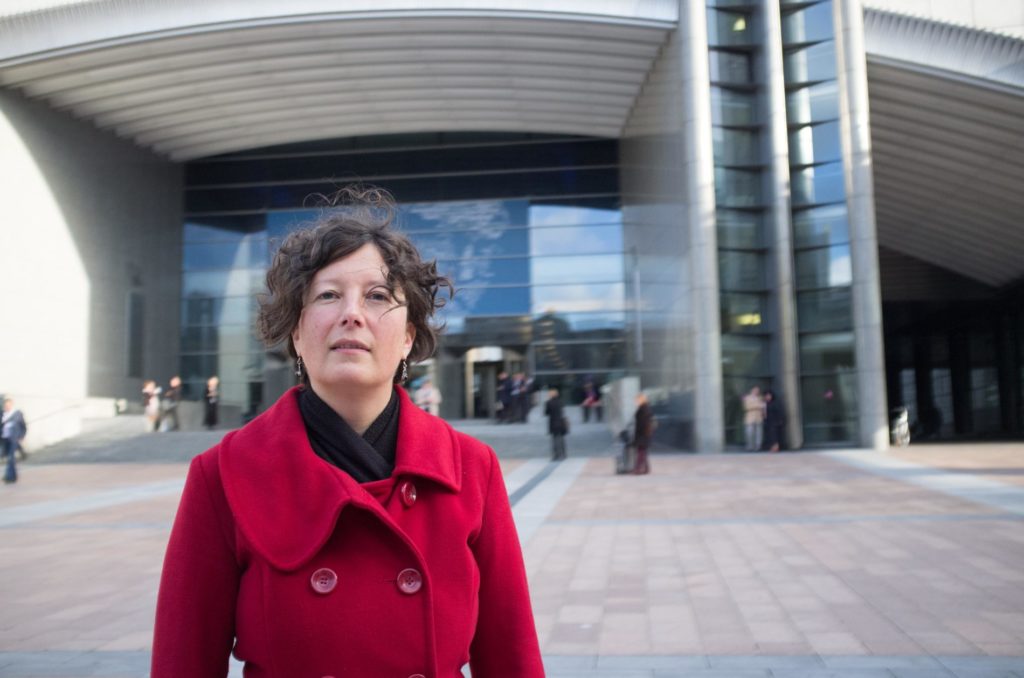
When researching influence on Twitter for digital advocacy, there is a name that consistently leads the rankings: Alice Stollmeyer.
A quick search reveals that Ms. Stollmeyer is actually more influential on Twitter than many elected officials. How is this possible? We interviewed Alice to find out and to gather her insights on the use of Twitter for public affairs.
My message is that we can all make a difference if we believe in what we are doing.
Alice Stollmeyer Tweet
Would you agree that Twitter can change opinions?
Definitely. Although I am only one person – I am not an NGO, I am not an official and I do not have any decision-making power – I am contributing to the dialogue and making a difference, which is fantastic.
My message is that we can all make a difference if we believe in what we are doing. Personally I am determined to drive forward the transition to a more efficient and renewable economy, which is crucial for our future.
What are the best ways to build engagement and build a following on Twitter? Do you have any tips and recommendations?
First, it is important to have a good Twitter profile with a nice picture and a short bio that encourages other people to follow you.
Twitter is all about consistency and maintaining a presence with insightful content and a consistent style. This is key in order to build engagement. The tools I use to help me in my work include TweetDeck for tracking conversations and organisation of my tweets, Bit.ly to see how many people are clicking on my links and Sumall,Klout and Twitter Analytics to keep up on my influence.
Choosing the right hashtag at the right time is essential. For example, even before the 2030 framework was presented by the Commission I suggested to them the use of the #EU2030 hashtag, and it has caught on and become a useful central gathering point for opinions on the 2030 climate and energy framework.
You publish a daily Storify newsletter with energy news and views. How is it useful? Are you looking at other ways of getting your message out, like writing a weekly blog or a filming a weekly video message?
My Storify is almost like a daily energy and climate newsletter and it allows people to subscribe to my feed and see what is happening, without even using twitter. I share it on Linkedin, Facebook and Google+ to reach a larger audience. It is also useful as an archive of conversations that I can refer to quickly and easily.
My focus will remain on Twitter, although I have recently been filmed by CommentVisions and made a short video for the AskBarroso debate on Euronews.
If any of our readers are wondering how they could be aligned with you or sponsor your activities, what would be your message to them?
Yes, I am open to partnerships although I cannot be financed or sponsored by one single player, since this would conflict with my independence. If there is a wide variety of organisations, institutions, PermReps, NGOs and progressive businesses to become donators or subscribers to my services, this would be ideal.
Another possibility would be to help organisations as digital strategic communications consultant, although this would come second to my Twitter duties.
Back in 2011 you wrote: “In my personal life I am moving from ‘observer’ to ‘participant’ in politics”. Today you are definitely an influential participant in politics. What is next for Alice Stollmeyer?
I will continue to work on European climate and energy issues, though I may do this in another role. But for now I would like to continue what I am already doing – it is a truly unique role and I feel that there needs to be someone who is playing it.
To connect with Alice Stollmeyer visit @StollmeyerEU.
- Written by: Nicholas Bruneau
- Posted on: January 28, 2017
- Tags: Digital Advocacy, Social Media

